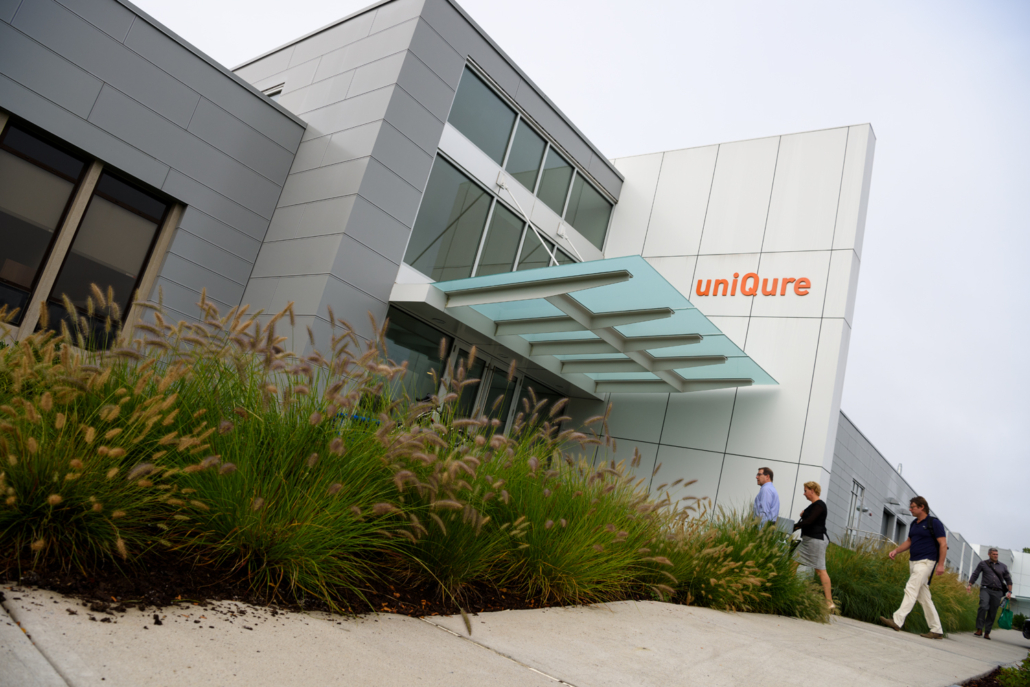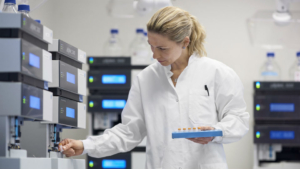
uniQure gets FDA breakthrough status for AMT-060
Dutch gene therapy specialist uniQure Biopharma BV will be able to rapidly develop its haemophilia B gene therapy AMT-060. Based on data of a Phase I/II safety study, the FDA granted breakthrough therapy designation for the new way to substitute the heritable lack of blood clotting factor IX.
The promise of AMT-060 to payers and patients is to shift the phenotype of the X-linked recessive inherited bleeding disorder from severe to mild with a single treatment over repeated intravenous infusions of recombinant blood clotting factor IX. According to uniQure (the US-Dutch successor of bankrupt Amsterdam Molecular Therapeutics), the adeno-associated virus 5 (AAV5) vector incorporating a codon-optimised wildtype human factor IX (hFIX) gene under control of the liver-specific promoter LP1 produces no transgene-associated safety signals in patients. Furthermore, uniQure suggests that the marked reductions in bleeding episodes after a single infusion might last for more than 5 years as FIX activity increases over this period of time.
The ongoing open label, non-randomised Phase I/II study, which kicked-off in May 2015, enrolled 9 men with moderate to severe disease in two groups receiving an infusion of 5×1012 gc/kg or 2×1013 gc/kg AAV5-rhFIX respectively over 30 minutes. The mean of all endogenous FIX activity values after cessation of prophylactic FIX infusions was stable at 5.2% in four men (median age 60,2 y) who were followed up for 52 weeks and at 6.9% in five men (median age 38,2 y) who were followed up for up to 26 weeks.
The four patients in the older cohort showed decreased number of bleeds following discontinuation of prophylaxis. Their annualised FIX consumption was reduced by 85% after AMT-060 administration. Patients dependent on continuous prophylaxis at study entry have discontinued their prophylaxis regimens.
In the younger cohort receiving the higher dose of AMT-060, the annualised spontaneous bleeding rate was reduced from 3.0 to 0.7. Clinically relevant FIX activity ?3% sufficient to shift the clinical phenotype was established in all patients
uniQure reported 73 treatment-related adverse effects, including three severe adverse effects (AEs) in nine patients but no discontinuations due to AEs or deaths. Albeit liver enzyme parameters increased, there was no hint that patients had developed inhibitory antibodies against FIX and no patients screened in the study tested positive for anti-AAV5 antibodies.
Study results of uniQure ‘s competitor Dimension Therapeutics Inc. with its hemophilia B gene therapy DTX101, an adenoassociated viral vector 10 expressing FIX (AAV-10rhFIX), also gave hints to asymptomatic elevated levels of the liver aminiotransferase ALT. Of six patients treated with DTX101 in an Phase I/II dose-escalation study, five showed high aminotransferase levels. Immunosupressors reversed the ALT elevations in four patients pointing to induction of an inflammatory process. However, as one patient with high ALT had a grade 4 adverse event, the company has put the study on hold. As DTX101 improved FIX levels in patients, the company is now seeking advice from the FDA. ALT level elevations seem to be an issue linked to gene therapies of hemophilia B. Administration of BAX335 from Baxter led to elevated levels of liver enzymes, and also Spark Therapeutics recently reported asymptomatic ALT elevations in a Phase I/II study. Experts in the field say the effects are indicative for immune responses. However, uniQure said it found no hints to antibodies.
The company has selected the 2×1013 gc/kg dose for pivotal trials.


 BIOCOM / aminul788 - Adobe Stock
BIOCOM / aminul788 - Adobe Stock Bayer Co.Lab
Bayer Co.Lab